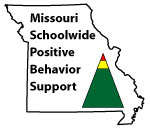When a facilitator shares their personal experiences with participants, it can help deepen the trust of the group. It shows that the facilitator, too, has a personal stake in the group’s learning. Additionally, if a facilitator chooses to answer a question before the participants do, the facilitator can model behavior in keeping with the group’s guidelines... |
As I continue to hone my craft after 30 years, I have slowly become more conscious of when to share an idea or a story, when to build upon a response provided by a student, and when to hold out for a better response. We approach the unknown in our class and dissect it - take it apart to better comprehend the details and then put it back to together to understand the composition of the whole thing. We build on each other's comments and observations, and sometimes we even disagree with each other. We look for rich opportunities to compliment and complement peers along the way. We work together to navigate the mazes of life in the fourth grade.
That statement from the NMAI makes a noble attempt to put the facilitator - in our case, the teacher - in his place among the group. It helps me realize that I do not always have to lord over my class as an omniscient being, but that it is OK for me to dig in the dirt right along side my students, looking for answers and discovering my niche.







































